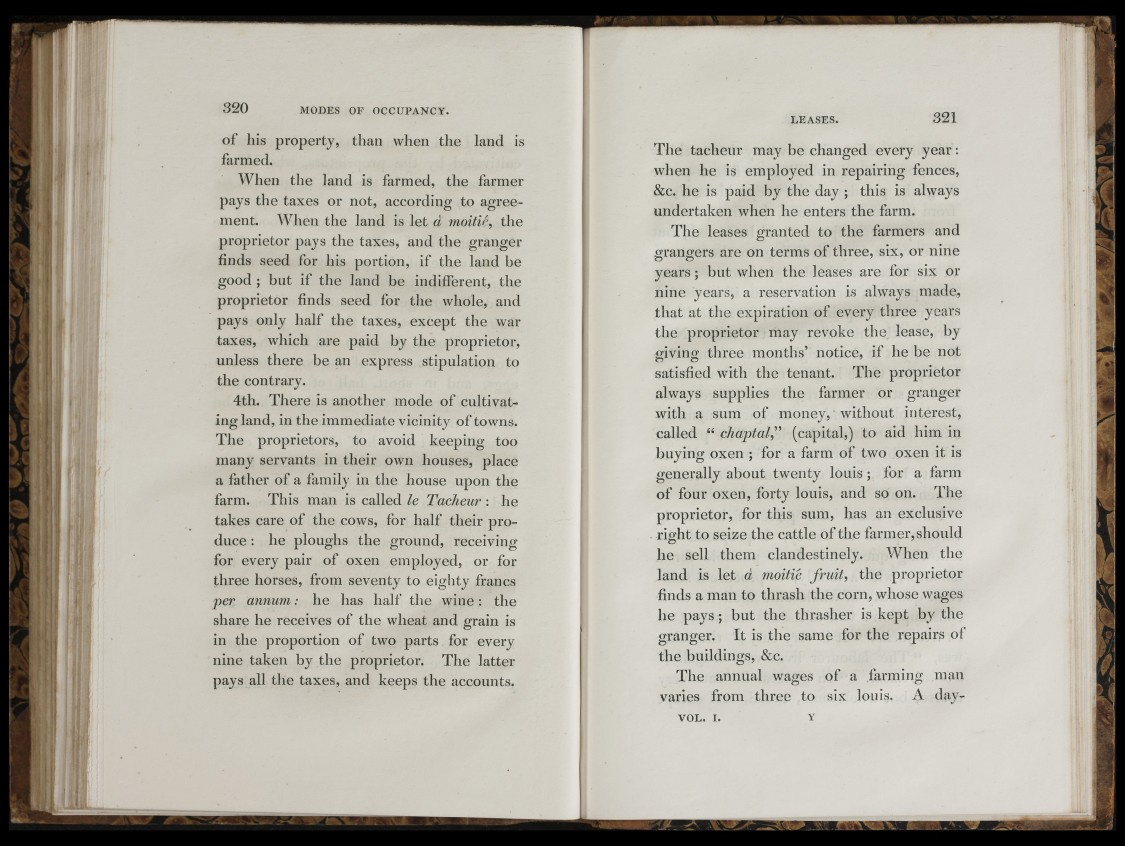
■ # ’6.-
M
1
m
m
m
320 MO D E S OF O C C U PA N C Y .
of his property, than when the land is
farmed.
When the land is farmed, the farmer
pays the taxes or not, according to agreement.
When the land is let d moitié, the
proprietor pays the taxes, and the granger
finds seed for his portion, if the land be
good ; but if the land be indifferent, the
proprietor finds seed for the whole, and
pays only half the taxes, except the war
taxes, which are paid by the proprietor,
unless there be an express stipulation to
the contrary.
4th. There is another mode of cultivating
land, in the immediate vicinity of towns.
The proprietors, to avoid keeping too
many servants in their own houses, place
a father of a family in the house upon the
farm. This man is called le Tacheur : he
takes care of the cows, for half their produce
: he ploughs the ground, receiving
for every pair of oxen employed, or for
three horses, from seventy to eighty francs
per annum : he has half the wine : the
share he receives of the wheat and grain is
in the proportion of two parts for every
nine taken by the proprietor. The latter
pays all the taxes, and keeps the accounts.
L E A S E S . 321
The tacheur may be changed every year :
when he is employed in repairing fences,
&c. he is paid by the day ; this is always
undertaken when he enters the farm.
The leases granted to the farmers and
grangers are on terms of three, six, or nine
years ; but when the leases are for six or
nine years, a reservation is always made,
that at tlie expiration of every three years
the proprietor may revoke the lease, by
giving three months’ notice, if he be not
satisfied with the tenant. The proprietor
always supplies the farmer or granger
with a sum of money, without interest,
called “ chaptalF (capital,) to aid him in
buying oxen ; for a farm of two oxen it is
generally about twenty louis ; for a farm
of four oxen, forty louis, and so on. The
proprietor, for this sum, has an exclusive
right to seize the cattle of the farmer, should
he sell them clandestinely. When the
land is let à moitié fruit, the proprietor
finds a man to thrash the corn, whose wages
he pays ; but the thrasher is kept by the
granger. It is the same for the repairs of
the buildings, &c.
The annual wages
varies from three to six louis. A day-
V O L . I .